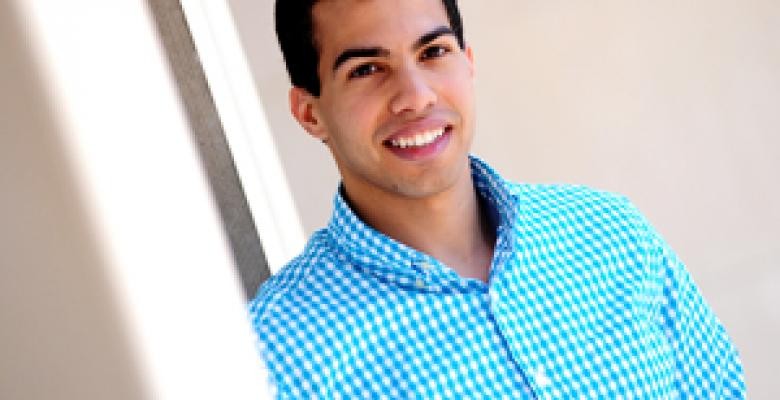Healing the World With Laughter, Physical Therapy

If laughter is the best medicine, Mohamed Mohamed provides a double dose. The 24-year-old, who graduates this May from the College of Physicians and Surgeons with a doctorate in physical therapy, has been raising money for humanitarian groups like UNICEF by performing at New York City comedy clubs.
After graduation, though, he will turn to more serious matters as a pediatric physical therapist. One of his dreams is to provide free care for uninsured patients in the New York area, where he grew up, as well as abroad.
“My ultimate goal is to initiate a traveling medical service group to provide care for neglected children suffering from physical or mental impairment, especially in war-torn countries,” he says.
Mohamed, whose parents are Egyptian, is currently working to set up a program to bring doctors and physical therapists to Egypt and Sudan to share their expertise with health providers there. “They’re very surgery-based,” he said of the region’s doctors. “And a lot of these kids, to be honest, the last thing they need is surgery.”
Born in Brooklyn and raised in New Jersey, Mohamed was drawn to medicine early. His mother is a registered nurse, and he began visiting hospitals and shadowing doctors, surgeons and physical therapists in high school. He noticed that patients spend far more time with their physical therapists than they do with their doctors, and frequently develop special, more intimate bonds. “You kind of become friends,” he says.
Currently he volunteers at a pro bono clinic in Bay Ridge, Brooklyn. Most low-income patients don’t have access to quality physical therapy, he notes, because they have little or no health insurance. That’s why he wants to focus on providing care to the uninsured once he passes his physical therapy board exams in June.
Mohamed is particularly interested in working with patients with prosthetic limbs, to assist them as they regain their balance, coordination and strength; a major component is helping the patients psychologically accept their prosthetic limbs.
At the end of their third year, students in the three-year physical therapy doctorate program specialize in one of four areas: orthopedic, pediatric, neurological or cardiopulmonary. Mohamed, however, wanted to pursue both the pediatric and orthopedic specialty track.
Kevin Wong, assistant clinical professor in the Department of Rehabilitation Medicine, says students are discouraged from pursuing dual specialties because of how much work is involved. Mohamed was not dissuaded.
“I really couldn’t believe it, honestly,” Wong says. “It’s the first time anyone’s ever done that, and it’s not that he got any credit for it in any way, shape or form. He just wanted to learn that material.”
Wong believes Mohamed is well-suited for a career in academia, and Mohamed says he is open to the idea of one day becoming a teacher.
In the meantime, he is still tinkering with his music and comedy act, which grew out of a fundraising effort for UNICEF’s Tap Project, which brings clean drinking water to children around the world. His act involves banter and humorous songs, such as \"You Put the Laugh in Falafel,\" that play off his identity as an Arab American.
Mohamed sees comedy as a chance for people to have fun and connect with each other in a world prone to fear and isolation, which is one reason he donates the proceeds to charity. He also believes in the power of music and laughter to help heal.
“I just enjoy being in the company of people that are lighthearted,” he said.